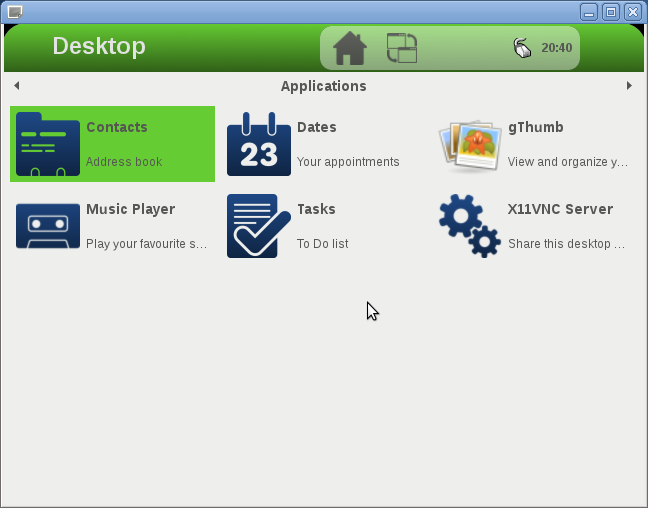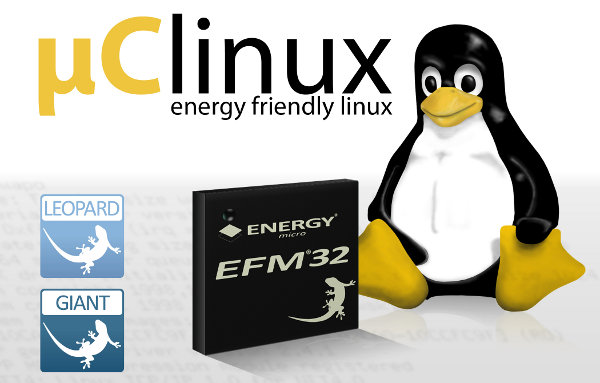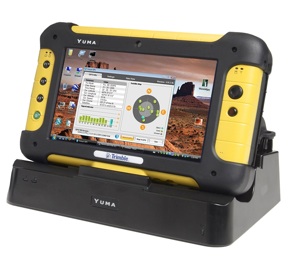Several operating systems will be able to run on the Raspberry Pi boards. However, the Raspberry Foundation had announced that they were working with Red Hat to deliver a Fedora release optimized for the board and Broadcom BCM2835 processor (ARMv6 + hard-float support). It appears the full name of this distribution is “Raspberry Pi Fedora Remix 14” most probably based on Fedora 14 (as the name implies), and not the latest Fedora 16 release. This Linux distribution will officially be launched on the 22nd of February 2012 at the Seneca Centre for the Development of Open Technology in Toronto, Canada during a 2-hour event (15:00-17:00) featuring: A hands-on opportunity to use a Raspberry Pi Live demonstrations of the Raspberry Pi Fedora Remix software Examples of the educational uses of the Raspberry Pi The 60-computer build farm used to build the Fedora ARM software on which the remix is based Information […]
armStoneA8: 49 Euros ARM Cortex-A8 Single Board Computer
F&S Elektronik Systeme GmbH, a German company, has announced the armStoneA8 , a Single Board Computer (SBC) based on an ARM Cortex A8 that will be available by the first day of the Embedded World 2012 Conference. The great part is that for a limited period (27 February 2012 to 4 March 2012) you’ll be able to buy the board for 49 Euros on their (yet to be launched) online shop. The board, that comes in PicoITX form factor (100 x 72mm), is powered by a Cortex A8 CPU running at 1GHz and the company provides support for Linux, WinCE 6.0 and Windows Embedded Compact 7. The company says the bootloader, SDK, BSP and kernels are already available with support for DirectX, OpenGL and hardware accelerated GStreamer. The company plans to release the detailed specifications before Embedded World 2012, but in the meantime, I found some PDF about the board […]
Embedded World Conference 2012 Schedule
The Embedded World Conference 2012 will taken place on the February 28 – March 1 in Nuremberg, Germany. There will be over 1,000 exhibitors for the tenth conference (it started in 2003) showcasing their new products and solutions for the embedded markets. Beyond the exhibition, there will also be 13 classes and 22 sessions during those 3 days. February 28th 2012 Classes: 09:30 – 15:30 – Modeling Behavior with UML: Interactions and Statecharts by Dr. Bruce Douglass, IBM 16:00 – 17:00 – Agile Systems Engineering by Dr. Bruce Douglass, IBM 09:30 – 18:00 – Introduction to Real-Time Operating Systems by Dr. David Kalinsky, D. Kalinsky Associates 09:30 – 18:00 – Hands-on-Workshop Safety Critical Linux – Automated debugging and code screening with formal methods by Prof. Nicholas Mc Guire, OSADL Safety Critical Linux Working Group and Andreas Platschek, OpenTech. 09:30 – 16:30 – Cryptography and embedded Security – The Workshop chaired […]
Using Your Android Smartphone As A Desktop Computer
I’ve already written some posts with videos showing the many things you could do with your smartphone thanks to MHL Technology. Christian Qantrell (YouTube User) uploaded a video on YouTube where he connected his smartphone to a monitor with a MHL cable showing how it could be used as a desktop computer. I really like his setup with a Samsung Galaxy Nexus (Android 4.0) smartphone connected to a monitor with an MHL adapter (Micro-USB to HDMI) and Apple Bluetooth keyboard and (Magic) trackpad. He also mentioned external power, but this should not be needed if his monitor supported MHL. The Apple trackpad makes it very neat as it tracks the finger movements as it would if you used the smartphone touchscreen. He showed web browsing and music playback and said gmail works great. Thanks to the multi-touch trackpad, pinch and zoom also works. Overall, the user experience feels pretty good. […]
ARM Mali-200 and Mali-400 GPU Open Source Driver Released
There has been a lot of controversy around GPU drivers and open source, as GPU drivers usually come with a blob (a binary file). If you have been lurking in Raspberry Pi forums you’ll know what I mean. But this will change thanks to Lima. No, not the capital of Peru but the open source graphics driver for ARM Mali GPUs (Mali-200 and Mali-400) also called Lima whose goal is stated as follows: The aim of this driver is to finally bring all the advantages of open source software to ARM SoC graphics drivers. Currently, the sole availability of binary drivers is increasing development and maintenance overhead, while also reducing portability, compatibility and limiting choice. Anyone who has dealt with GPU support on ARM, be it for a Linux with a GNU stack, or for an Android, knows the pain of dealing with these binaries. Lima is going to solve […]
Yocto Project Quick Start Guide for Ubuntu
Yocto is an embedded Linux build system used to create a Linux distribution for a specific application/board combination. I’ll describe 2 methods to get started: Building and running a qemu image for x86 from scratch Using pre-built binaries to run the x86 image in qemu This is a shorter version of the longish Yocto Project’s Quick Start Guide. The official guide is more complete (explains all details) and give instructions for several distributions, whereas this guide simply lists each step and is focused on Ubuntu. So you could use this guide to start the build, and during the build (which will last a while), read the official guide to actually understand how it all works. Prerequisites First, you need to use bash instead of dash in Ubuntu:
|
1 |
sudo dpkg-reconfigure dash |
and select “No” to use bash. Then install the required packages with apt-get:
|
1 2 3 4 5 |
sudo apt-get install sed wget cvs subversion git-core coreutils \ unzip texi2html texinfo libsdl1.2-dev docbook-utils gawk \ python-pysqlite2 diffstat help2man make gcc build-essential \ g++ desktop-file-utils chrpath libgl1-mesa-dev libglu1-mesa-dev \ mercurial autoconf automake groff libtool xterm |
Building and running a qemu image for […]
Pengutronix uCLinux 3.2 for Energy Micro EFM32 Cortex-M3 Gecko MCUs
Energy Micro and Pengutronix announced that they will be demonstrating µClinux for Cortex-M3 on the EFM32 Gecko range (Leopard and Giant) of MCU during Embedded World Conference 2012 on 28 February – 1 March 2011 in Nuremberg, Germany. Pengutronix’s port of µClinux features the Linux 3.2 kernel, providing the cost and time-to-market benefits of Linux operating system, while maintaining low current consumption of just 1.6mA when in idle mode. The company explains that using µClinux reduces design cycles and accelerates time-to-market by giving the designer access to ready-made system functions such as IP connectivity, file systems, and multi-tasking. Users can also employ the broad range of free software and drivers available as open source, within a robust, portable open source framework. The teaser video (below) shows that the demo platform (Giant Gecko Development Kit?) uses 4 MB of RAM (755 KB used after boot-up) and the MCU delivers 9.07 Bogomips. […]
Trimble Yuma: A Military-Grade Rugged Ubuntu Tablet
SDG Systems announced an Ubuntu version of the Trimble Yuma, a rugged tablet for the industrial and military applications. The company also sells the product with Windows 7. This tablet enables the use of open source geospatial applications such as GRASS or Quantum GIS, as well as other Linux-based applications. The water- and dust-proof tablet meets the military MIL-STD-810F standard and run Ubuntu 10.04 LTS netbook edition, although the company said other Linux distributions are available on request with a minimum purchase agreement or engineering fee.. Here are the Yuma Trimble specifications: Processor: Intel Atom Z530 1.6 GHz processor Memory: 1 GB DDR2 Storage: 32 GB Solid State Hard Drive Expansion: SDIO memory slot ExpressCard 34mm slot Display: 7″ widescreen 1024×600 WSVGA 650 nit Standard Batteries: Dual hot-swappable Lithium-Ion batteries, 2600 mAmp each Extended Batteries: Dual hot-swappable Lithium-Ion batteries, 5100 mAmp each I/O: USB 2.0 port (x2), 9-pin serial port […]








